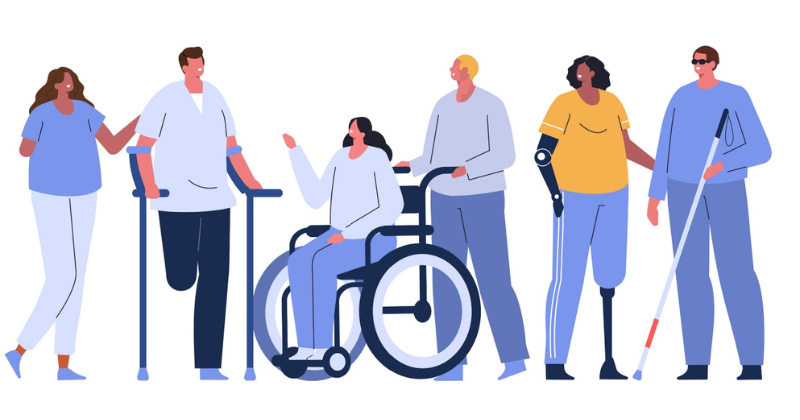Introduction
Nominated Senator, Crystal Asige, tabled the Persons with Disabilities Bill, 2023 (the Bill) before the Kenyan Senate on 22nd March 2023. The Bill seeks to replace the Persons with Disabilities Act (Cap. 133) Laws of Kenya (the Act), which has been in place since 16th June 2004. The Bill also intends to restructure the National Council for Persons with Disabilities (NCPD) and provide an institutional framework for the protection, promotion and monitoring of the rights of persons with disabilities (PWDs).
The Bill is premised on Article 54 of the Constitution, which imposes an obligation on the State to ensure that the rights of PWDs are respected and upheld. The Bill also addresses the evolving needs of PWDs, ensuring that they are fully integrated in society. The Bill demonstrates Kenya’s commitment to complying with the Convention on the Rights of Persons with Disabilities by improving the standards of living and day to day activities of PWDs residing in Kenya.
The Bill was passed by the Senate on 21st February 2024 and is currently before the National Assembly for consideration. This article seeks to highlight some salient provisions of the Bill.
Greater Appreciation of PWDs’ Rights
PWDs will have the right to employment and will not be disqualified or terminated based on their disability. The Bill supports this by mandating employers to reserve at least five percent (5%) of employment opportunities for PWDs. The Bill additionally proposes that employees with disabilities serve an additional five (5) years, beyond the normal retirement age prescribed by the government. This translates to a retirement age of sixty-five (65) years for such employees with disability, as opposed to the current sixty (60) years stipulated in the Act.
The issue of termination of employment was addressed in the case Lucy Chepkemoi v Sotik Tea Company Limited (2022) eKLR where the Court noted that disability is not inability. Therefore, disability alone does not in itself amount to lack of capacity to discharge one’s professional duties, to warrant termination of employment.
Secondly, PWDs have the right to protection in all risky situations including armed conflicts, humanitarian emergencies and natural disasters. All institutions are required to obtain data relating to PWDs and share the same with agencies responsible for disaster management. In risky situations, PWDs are to be prioritised by the responding agencies, in the appropriate intervention mechanisms e.g., evacuation etc.
Thirdly, all PWDs have the right to effective access to justice on an equal basis with others. This will be done by exempting them from paying Court fees and providing them with braille services and sign language interpreters when they attend Court. The Attorney General, in consultation with the Law Society of Kenya, will also be required to develop regulations that provide free legal services to PWDs in certain situations, including matters involving infringement of their rights and fundamental freedoms.
Lastly, every PWD has the right to obtain registration documents e.g., a disability card, national identity card, birth certificate, passport etc. These documents will serve as proof of identity when a PWD seeks education, health care services and employment opportunities.
Incentives for PWDs
The Bill provides various incentives to PWDs. Firstly, an employee with a disability can be wholly or partially exempted from paying income tax on employment income. This is after an application for exemption is approved by the Cabinet Secretary responsible for matters relating to finance (the Cabinet Secretary). Previously, a PWD could only apply for a tax exemption after undergoing a vetting process to determine if the applicant had a disability. In Issue 18 of Legal & Kenyan published in October 2023, we featured an article in which we discussed whether the tax exemption process for PWDs was superfluous. The article concluded that the vetting process was indeed superfluous as it was an unnecessary obstacle to PWDs who are seeking tax exemptions, since PWDs in seeking the exemption, would have already undergone a mandatory medical examination in advance.
The issue of vetting for purposes of exemption was addressed in HKK v National Council for Persons with Disability & Another (2023) KEHC 2418 (KLR) where the NCPD had declined to renew the exempt status of the petitioner, under the Persons with Disabilities (Income Tax Deductions and Exemptions) Order 2010 despite having furnished the NCPD with the required documents including a medical report certifying her disability. Consequently, the Court observed among others, that the failure by the NCPD to renew her exemption deprived her of equal protection under the law, dignity and respect contrary to Articles 27, 28 and 54 of the Constitution.
Secondly, the Bill exempts tools and equipment used by PWDs from import duty and value added tax. This is a good addition as it makes these accessories more affordable and accessible to PWDs.
Finally, PWDs will be afforded an equal opportunity to access financial credit, for example bank loans, mortgages etc. Access to financial credit reduces dependance on others as it allows PWDs to fund their education or business ventures thereby sustaining themselves.
Enhanced Penal Consequences for Offences
Notably, the Bill has significantly enhanced protection for PWDs by augmenting the penal framework relating to offences against them, both in terms of increasing the punishment of existing offences under the Act and introducing new offences which presently do not feature under the Act.
An example is the offence of concealment of PWDs. Under the Act, the penalty is only a fine not exceeding KES. 20,000. However, the Bill has increased the fine tenfold to KES. 200,000 or up to one (1) year imprisonment, or both.
There are also new offences proposed under the Bill, such as performance of a procedure by a medical practitioner, resulting in the infertility of a PWD. This offence will attract a hefty fine of up to KES. 3,000,000 or up to four (4) years imprisonment, or both. Another example is the intentional denial of food or fluids to a PWD by a person exercising care or responsibility over the PWD, which will attract a fine of up to KES. 200,00 or up to one (1) year imprisonment, or both.
Further Accommodation of PWDs
The Bill also proposes a raft of measures to further accommodate PWDs in their day-to-day life.
First, owners of public service vehicles (PSVs) would be required to modify their vehicles to suit PWDs. Once the modification is made, they may apply to the Cabinet Secretary for Finance for twenty-five percent (25%) of the modification cost. This would cushion the owners of PSVs from having to bear such costs. The proposed modifications would promote inclusion of PWDs in the transport sector and eliminate barriers that currently impede PWDs from fully enjoying public transport services.
Notably, the Bill has significantly enhanced protection for PWDs by augmenting the penal framework relating to offences against them, both in terms of increasing the punishment of existing offences under the Act and introducing new offences which presently do not feature under the Act.
Secondly, commercial and residential houses built by government agencies will reserve at least five percent (5%) of the units to PWDs, with favorable payment conditions like longer repayment periods.
This will address the barriers that PWDs face in the real estate market. Similarly, five percent (5%) of market stalls would be reserved for PWDs. This would foster economic independence as it would allow PWDs to engage in commercial activities.
Thirdly, all government departments would be required to have a disability mainstreaming unit headed by a member of the department. The disability mainstreaming unit would be responsible for ensuring compliance with the Bill’s provisions and discussing disability matters with the NCPD. This would significantly contribute to the development of inclusive policies for PWDs.
Lastly, all media stations with television and radio broadcasts would, on a monthly basis, be required to allocate an hour of free airtime to discuss disability issues. This would help sensitize members of the public on disability issues and the importance of integrating PWDs in society. The NCPD would also coordinate the publication of at least a column every month in print media on PWD issues.
Conclusion and Recommendations
Whereas the Bill marks a tremendous step in the right direction as far as enhancing PWD interests is concerned, the following proposals should be considered as the Bill undergoes scrutiny within the National Assembly.
- The issue of vetting for purposes of registration as a PWD under the 2010 Regulations has not been addressed by the Bill. Therefore, there may be need to introduce an amendment to the Bill, to the effect that once a person has undergone a medical examination to ascertain his or her disability, there should be no further vetting undertaken by the vetting committee of the NCPD.
- The Bill does not specify what the owner of a PSV who modifies his or her vehicle to accommodate PWDs should do, as far as the modification costs are concerned. It only provides that such owner shall apply to the Cabinet Secretary for twenty-five percent (25%) of the direct cost of modification. The drafters should clearly specify the nature of accommodation sought by the PSV’s owner from the Cabinet Secretary, whether a cash refund or a tax deduction etc.
- Whereas the Bill requires media houses to accord at least one (1) hour of free radio or television coverage on disability related issues per month, it doesn’t specify the place of streaming platforms in such coverage, noting that these platforms are increasingly becoming a source of information and interaction with the general public. Therefore, the role and place of social media should be provided for.
- Much as the NCPD is obligated to ensure that at least a column is published per month on print media addressing disability matters, the Bill should consider whether social media posts fit within the scope of print media. It is noteworthy that social media is gaining traction as the new source of written information, which has, to some extent, impacted the business of traditional print media.





